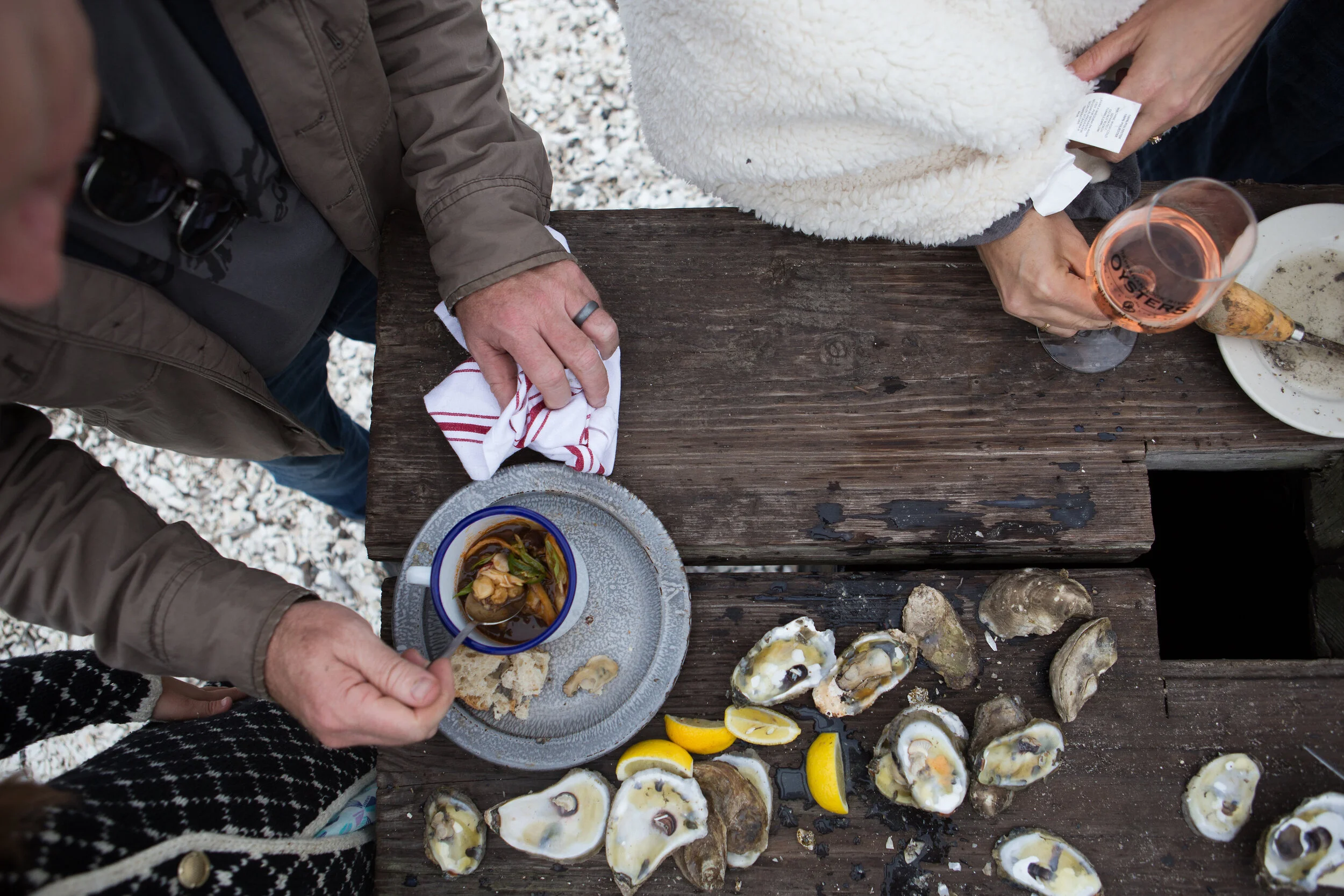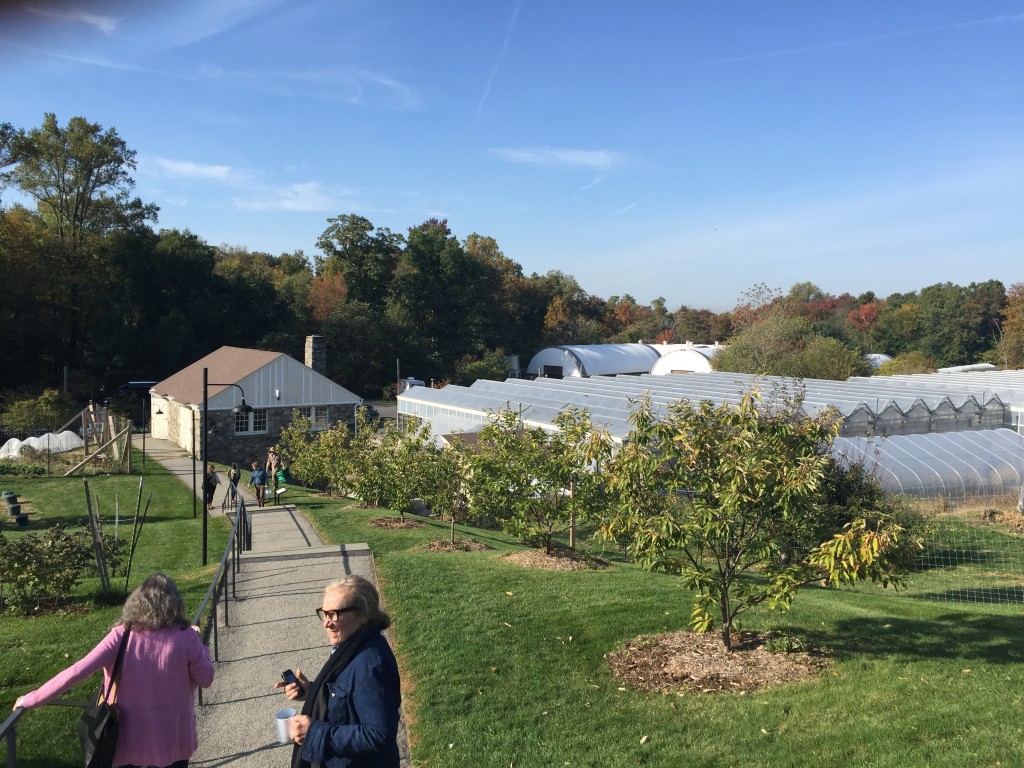Will You Have Food for Tomorrow?
/ By Mike Koch, special to EdibleDC
By Mike Koch, special to EdibleDC
A few weeks ago I was among the attendees at the New York Times “Food for Tomorrow” conference at the Stone Barns Center for Food and Agriculture in Tarrytown, NY. It was the second annual event of its kind, bringing together food writers, food and agri-business entrepreneurs, academics, politicians, nonprofit leaders and, yes, a handful of farmers. I was honored to be among them and found the content both challenging and stimulating.
Four ideas persist as rattling presences in my mind:
One: We would do well to eat less meat—better said, we should only eat meats we procure from known, sustainable producers. The horrors and environmental impact of animals raised in “concentrated animal feeding operations,” also know as CAFOs, are well documented.
Two: We should eat seasonally and mindfully. Technology and innovative growing practices are extending the boundaries of our traditional regional growing season. But again, know from where your food is coming and vote with your food dollars to support the growers in your own community.
Three: Ask questions about growing and production practices. Buying from a local farmer or producer is good; but is not a guarantee of sustainable practices. Ask the farmer or producers about their practices and expect transparency.
Four: Don’t waste food. Our food system is already wasteful and inefficient enough. Whether food is tossed because it is “ugly” and not considered retail worthy or it is tossed because it is considered unusable, we must hold ourselves accountable to better use of our own food in a world increasingly suffering from starvation and scarcity.
As important as these first-world ideas might be to Mid-Atlantic inside-the-beltway readers, the ideas that have stopped rattling and decidedly stuck are these:
Having “food for tomorrow” is not a guarantee or an American entitlement like Social Security. In much of the world, “food for tomorrow” is not the statement of a long-term goal or a policy aspiration, it is a question. It is a daily and hourly challenge. We need to carefully examine our uniquely American assumption that cheap and abundant food is our right.
And to add to the issue, all food is not equal. In fact, a lot of what Americans eat is not even considered food. It is a great irony that Americans for whom food for tomorrow is a question not only struggle to get food, but are often harmed by the foods they can get in their neighborhoods. Left with no choice, these poor citizens eat the over-processed, over-subsidized, over-fertilized, over-marketed, over-sweetened foods that we New York Times conference delegates no longer deign to call food.
Will you have food for tomorrow?
Weeks before the Stone Barns event, I had been invited to a smaller roundtable discussion hosted by The Atlantic magazine. A smaller but no less credentialed group had been convened to discuss achieving “food and health equity” for Americans—rural and urban—who find themselves residents of “food deserts.”
Ironic in its own twist, a food desert is a place where only this non-food food (meaning highly processed, highly caloric, low-nutrition foods) is available and is wreaking dire consequences on the health and well-being of those who consume it. The arc of our broad conversation went something like this:
All food starts with a farmer. What farmers grow is a product of market economics and government subsidy. Scale confers great advantage and distorts production; it decreases agricultural product diversity. The vast majority of mass-produced agricultural products like corn and wheat and soybeans are destined for processing—lots of it. Processed foods are economically cheap but have great and incalculable costs on our environment and our health care system. Processed foods are made more attractive and addictive and unhealthy by the calculated addition of sugar and fats. Even when real foods are made available in food deserts, consumers have lost their connection with what real food is and simply don’t have the time to or ability to do simple scratch cooking. “Social engineers”—two words I heard paired for the first time in this discussion—must be deployed to re-educate consumers, change their behaviors and overtly connect our food system with our health care system.
Will you have food for tomorrow?
In the arc of that conversation, the air was sucked out of the room when we were reminded by one of the panelists of Abraham Maslow’s famous “hierarchy of needs.” When daily survival is at risk, consumers will happily eat non-food food rather than starve, let alone seek out a farmers market carrot which they have no idea what to do with in the kitchen. Maslow’s hierarchy puts a social twist on the core question: Will you have real food for tomorrow or will your need for survival dictate the choice of non-food food?
On the first Monday of November, we hosted our Farmland Feast. This annual fundraising event earns nearly half of our operating expenses. At FRESHFARM Markets we use these funds to run farmers markets. We use these funds to develop programs that help farmers and producers grow and to make their businesses economically viable. We use these funds to increase consumer preference for seasonal foods, locally grown foods, sustainable foods. We use these funds to increase consumer access to these foods and to teach them how to cook and preserve these foods. We think about increasing the diversity and security of the Chesapeake Bay foodshed, the foodshed of our nation’s capital. Ours is an important mission: In 2012 the average American farm lost nearly $1,400.
Will you have food for tomorrow?
At FRESHFARM Markets, we are dedicated to making sure the answer is a resounding “yes!” for consumers all across the economic and social spectrum.
Mike Koch is the Executive Director of FRESHFARM Markets and founder of FireFly Farms, an artisanal cheese business. A local food advocate and agribusiness leader, Koch has developed new partnership models with milk producers and has spearheaded advocacy and economic development efforts to support agriculture based businesses.





